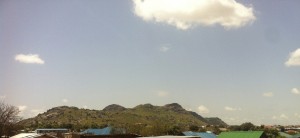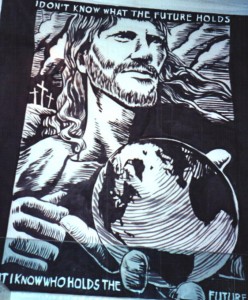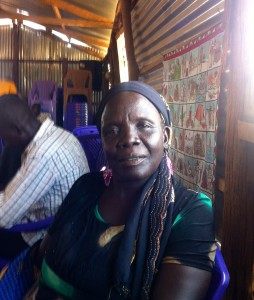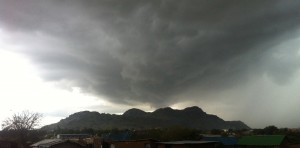
Storm over Juba
Jebel Kujur (“Spirit’s Mountain”) This mountain, that overlooks Juba Town from the west/north, is considered the ancestral home of the witch doctors/spiritualists/seers of the Juba area.
We took this photo from the doorway of Nuru Baptist Church as a strong storm moved in.
Takeaways:
- Juba, the capital of South Sudan, is indicative of the violence and chaos that has descended on the world’s newest country.
- Jebel Kujur is symbolic of the spiritual battle going on in this country and its neighbors. Jesus laid it out directly in John 10:10, “The thief comes to steal, kill, and destroy. I have come that they might have life and life abundantly.”
- The thief, Satan, is active here. When men kill innocents because of their tribal allegiance or the marks on their forehead, it’s clearly the work of the Enemy. He’s doing a good job of “stealing, killing, and destroying here.” We meet the results of these acts in the camps, villages, and roadways of South Sudan and its borderlands.
- However, the Giver of Abundant Life, Jesus, is busy. Lives are being changed, the Gospel of love and forgiveness is taking root, and people are finding Hope in the midst of uncertainty.
Same spot, same mountain, different sky
. . . But, is He Safe?
Is it safe up there? Are you sure y’all ought to be in South Sudan now?
It’s a fair question.
And a timely one.
South Sudan has descended into civil war that shows no sign of stopping.
Peace seems far off.
I heard a man in Juba say, “Someone has taken our peace far away. We’re asking them—whoever they are, wherever they are—to bring it back. We’re asking God to send peace to South Sudan.”
Parts of the country are immersed in fighting and even ethnic cleansing. Your tribal heritage may cost your life.
Other parts of the country are untouched by the violence. Life is no different—for good or bad, hard or ease—since the fighting broke out ten months ago.
But is being in South Sudan safe?
Better yet, is it safe for an American?
Safe as in compared to:
Nairobi, Kenya where terrorists charged in and targeted Westerners.
Western Africa where Ebola threatens nations.
Schools and military bases in America where death can arrive suddenly and without mercy.
The question isn’t “is it safe?”
The real question should be, “Is it the right place?”
The place you’re called.
Are you where you’re called to be?
At this moment.
Not yesterday.
Maybe not next year.
But now.
Today.
The calling place.
Not the safe place.
If you’re looking for a safe place to be, don’t come to Africa.
It can be dangerous.
Also avoid driving on I-10 between Houston and New Orleans. People die daily on that road. It ain’t safe.
In fact, life itself isn’t safe.
Our priority isn’t about being safe.
It should be about making an impact.
In our case, impact for the Kingdom of God.
In C.S. Lewis’ classic, The Lion, The Witch, and the Wardrobe, one of the heroes Lucy first sees Aslan the Lion.
She asks, “. . . but is he safe?”
“No, but he is wonderful.”
Aslan represents Jesus, the Lion of Judah.
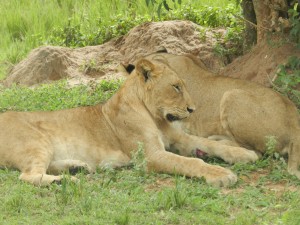
Following Jesus isn’t safe.
It never has been.
Just read the Book of Acts.
It’s not meant to be.
Following Jesus is not for the weak of heart
Or the sheltered life.
It’s out in the boat on the choppy Sea of Galilee.
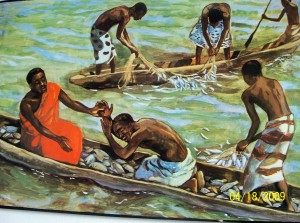
It’s about walking into Jerusalem during the most memorable Passover week.
Not running from problems.
But attacking them head on.
It’s the adventurous life.
And that doesn’t just mean going to Africa or the end of the world.
Following Jesus was just as exciting (and challenging) in my lifetime home of Dry Creek, Louisiana as it has been in Uganda, South Sudan, and Kenya.
Is it safe over here?
I’m not sure.
Being in God’s will is always the best place to be, if not the safest.
Is He safe?
I mean Jesus.
No. Read his words in the Gospels. He talks about sacrifice, tribulation, danger, opposition, daily denial, and even death.
It’s as if Jesus is trying to talk men and women out of following Him. *
Is He safe?
No, but He is wonderful.
*My new boss, David Platt, shares eloquently on this in the first chapter of his book, Radical.
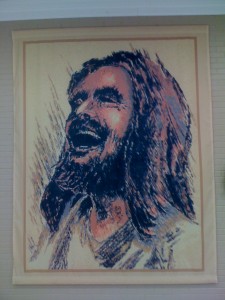
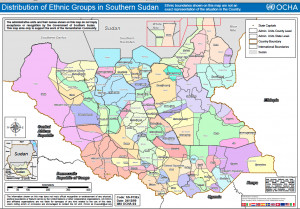
Abraham at Sudd Institute Seminar:
“Will whoever took our peace away, please bring it back? We ask you and God, ‘Bring our peace home.’
Our country is on fire and it is unbearable on all of us.
Whether you are on the streets of Juba or in the desolate Upper Nile State, the fire is raging.”
The Graves of the Pioneers
Markus Giwa is a missionary.
He has been called to serve in South Sudan.
From his native country of Nigeria.
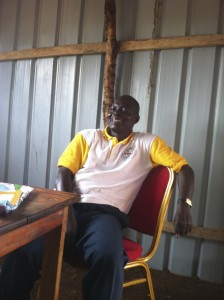
An African missionary.
From a pioneer mission country to an unreached country.
Pastor Giwa pastors Nuru Baptist Church.
He related a touching story:
“When a young Nigerian pastor enters the Baptist Seminary in Lagos, he is driven to visit the missionary graves.”
He had my attention. “What graves?”
“The graves of your early Baptist missionaries who came from Africa.”
My mind went back to our Training Base near Richmond, Virginia. The wall near the cafeteria is lined with plaques listing all Southern Baptist Missionaries who’ve died on the field.
We first sent missionaries to Africa (Nigeria and Liberia) before the American Civil War.
They were among Western pioneers who brought their belongings in coffins.
Many of them were buried in those same coffins in the red soil of Africa.
Disease has always been a killer in Africa.
Many of these early heroes died within five years.
Some might say it’s for naught.
They came and died before they even got settled.
But it wasn’t for nothing.
Markus Giwa is a spiritual great grandson of these men and women who came knowing they probably wouldn’t return.
He’s now serving in a war-torn South Sudan.
A direct extension, in my opinion, of those who landed on the shores of western Africa a century and a half ago.
We may never visit those graves.
You may never know the names of those on the Richmond wall.
I view them as part of that great growing cloud of witnesses listed in Hebrews.
When I see them, I plan to ask, “Was with worth it?”
I firmly believe the answer is yes.
Below: There is a hunger for God’s word among South Sudanese men and women. See Story Cloth behind Momma Swahili.
 Creekbank Stories Curt Iles, Storyteller
Creekbank Stories Curt Iles, Storyteller
